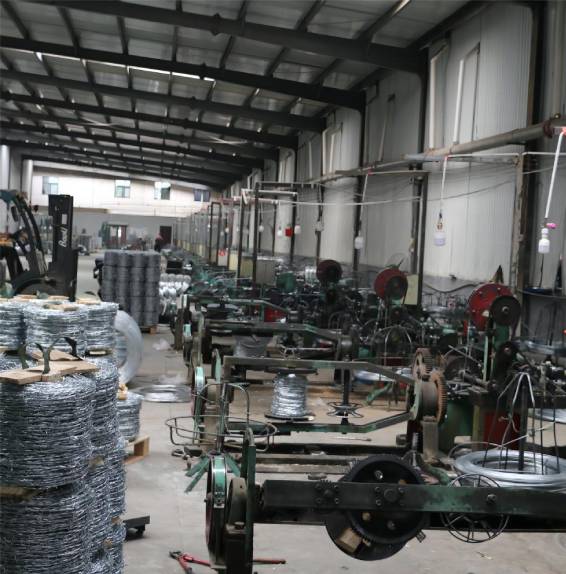Exploring the Best Types of Wood Nails for Your Next Project
The Versatility of Wood Nails An Essential Tool in Carpentry
When it comes to woodworking, choosing the right fasteners is crucial for ensuring the integrity and durability of any project. Among these fasteners, wood nails hold a significant place, offering versatility, strength, and ease of use for both novice and experienced carpenters. This article will explore the different types of wood nails, their applications, and why they are indispensable in carpentry.
What are Wood Nails?
Wood nails, or common nails, are specifically designed for use with wood-based materials. These fasteners are characterized by their sharp points and thicker shafts, which enable them to penetrate wood fibers without splitting the material. Unlike other nails, wood nails often have a flat head to provide a larger bearing surface, ensuring a secure fit in wooden structures.
Types of Wood Nails
Wood nails come in various types, each serving a specific purpose in woodworking projects
1. Common Nails These are the most widely used type of wood nails, featuring a flat head and a thick shaft. They are primarily used for framing, roofing, and general construction.
2. Finishing Nails These nails have smaller heads and are commonly used in finish carpentry. They are ideal for attaching trim, molding, or other decorative elements where aesthetics are important, as they can be easily countersunk and concealed.
3. Brad Nails Even thinner than finishing nails, brad nails are utilized for delicate work where a slight hold is required without damaging the wood. They are particularly useful for attaching lightweight materials, such as veneer or small trim pieces.
4. Spike Nails These are larger and thicker than standard wood nails, designed for heavy-duty applications like timber framing or securing large wooden beams. Their length and strength provide remarkable holding power.
5. Decking Nails Specifically engineered for outdoor use, decking nails are often coated to resist corrosion and are used to secure decking materials. Their design helps prevent splitting in pressure-treated wood.
Applications of Wood Nails
The applications of wood nails are vast, making them essential in various woodworking projects, including
wood nails

- Furniture Building Whether constructing a table, chair, or cabinet, wood nails provide the necessary strength and stability to hold various components together.
- Framing In residential and commercial construction, wood nails are used extensively in framing walls, roofs, and floors—forming the backbone of any building.
- Craft Projects Wood nails are popular in DIY projects and crafts due to their availability and ease of use. Hobbyists often use them for creating decorative items or building small wooden structures.
- Renovation and Repair For repairs and renovations, wood nails can help reinforce existing structures, making them ideal for fixing issues in old furniture or home framing.
Why Choose Wood Nails?
1. Strength Wood nails are designed to withstand various loads, making them ideal for structural applications. Their thicker gauge ensures they hold securely without bending or breaking.
2. Versatility With a range of types tailored for specific tasks, wood nails are suitable across numerous applications in woodworking, from furniture to construction.
3. Accessibility Widely available at hardware stores, wood nails can be purchased in bulk, making them an economical choice for both professional carpenters and DIY enthusiasts.
4. User-Friendly The design of wood nails allows for easy installation with minimal tools, making them accessible for those who may be new to carpentry.
5. Finishing Touches Certain types, like finishing nails, can be hidden beneath the wood's surface, allowing for clean, polished results—important in any professional-looking project.
Conclusion
In the realm of carpentry, wood nails are more than just simple fasteners; they are key components that contribute to the overall strength and durability of woodworking projects. Whether building furniture, framing a house, or taking on a creative DIY project, understanding the different types and applications of wood nails can empower woodworkers to achieve their desired results effectively. As an integral part of the toolkit, wood nails remain essential for anyone working with wood.
-
Space-Saving Chain Fence Hacks Vertical Gardening with Cyclone MeshNewsJul.16,2025
-
Innovations in Iron Nail Wire Production for Modern ConstructionNewsJul.16,2025
-
Creative Uses of Wire Netting Fence in Modern Landscape DesignNewsJul.16,2025
-
Barbed Wire Fence Innovations in Anti-Climb TechnologyNewsJul.16,2025
-
Architectural Uses of Umbrella Nails for Aesthetic Roof DesignsNewsJul.16,2025
-
Architectural Uses of Razor Barbed Wire in Secure Urban DesignNewsJul.16,2025




